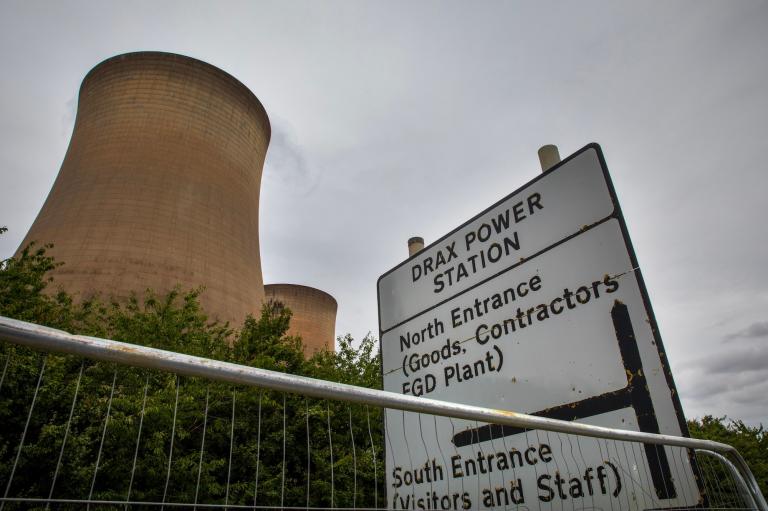China promised to slow its carbon emissions, saying it would nearly halve the ratio of pollution to GDP over the next decade — a major move by the world’s largest emitter, whose cooperation is crucial to any deal as a global climate summit approaches.Beijing’s voluntary pledge Thursday came a day after President Barack Obama promised the U.S. would lay out plans at the summit to substantially cut its own greenhouse gas emissions. Together, the announcements are building momentum for next month’s meeting in Copenhagen.
“Governments from all over the world are delivering before the climate conference,” Denmark’s Climate Minister Connie Hedegaard said. “U.S. and China have come forward. All across the globe, things are moving. This is good news.”
If China did nothing and its economy doubles in size as expected in coming years, its emissions would likely double as well. Thursday’s pledge means emissions would only increase by 50 percent in such a scenario.
Environmental groups and leaders largely welcomed China’s move.
“Before Copenhagen, we desperately need this good news,” said Yu Jie, head of policy and research programs for The Climate Group China, a non-governmental group. She described China’s 45 percent target as “quite aggressive.”
… Yvo de Boer, the United Nations climate chief, said the pledges by China and the U.S. pave the way for a deal.”The U.S. commitment to specific, midterm emission cut targets and China’s commitment to specific action on energy efficiency can unlock two of the last doors to a comprehensive agreement,” he said.
That’s from the conservative Washington Times (subs. req’d) story “China vows to dramatically slow emissions growth.”
Is this a big deal? Is this a game-changer, is this a “possible breakthrough in Denmark next month in the long-stalled climate negotiations” as the Washington Post put it Friday? Yes and no. This isn’t really a game changer because it has been so long in the making — see my May post, “Exclusive: Have China and the U.S. been holding secret talks aimed at a climate deal this fall?“ The game changing on the Chinese side came two months ago (see “Are Chinese emissions pledges a game changer for Senate action?“):
China’s emissions pledge shakes up Capitol Hill debate
… “That’s encouraging,” said Sen. Lindsey Graham (R-S.C.). “That will help us make decisions on our emission problems.”
Sen. Evan Bayh (D-Ind.) said … “that’s a step in the right direction.”
That’s from E&E News in September.
The Chinese target could have been stronger. I would like to have seen a 50% or higher target for carbon intensity reduction. I do think this represents a divergence from business as usual — it should result in an annual CO2 growth rate of 4% or less, which is under half the annual growth rate of the past decade. But it basically just requires a continuation of their energy efficiency gains since 2005 plus the various renewable energy pledges they have made (see “China begins transition to a clean-energy economy“). In that sense, China’s 2020 target is a lot like ours — a good start but it could be a lot better.
In fact, China’s emissions need to peak in the 2020-2025 timeframe to give us a real shot at beating 450 ppm — and I expect they will (see “Peaking Duck: Beijing’s Growing Appetite for Climate Action“). The Washington Post interviewed me on this very point Thursday (yes, Thanksgiving day):
“The big unknown is how fast China’s going to grow,” said Joe Romm, who edits the blog ClimateProgress.org for the liberal Center for American Progress Action Fund. He noted, however, that the government may make deeper cuts because it tends to ratchet up its energy goals. Just recently, he said, China tripled its target for wind energy production. “China has a history of strengthening these targets,” he said.
I am quite certain that China will cut their carbon intensity by far more than 50% by 2020.
The bottom line is that the specific Chinese announcement today is only a medium-sized deal, but the evolution of the US-China partnership on climate and clean energy is a huge deal — and should set the stage for a genuine global deal coming out of Copenhagen.
Related Posts:
- Obama can get a better climate bill in 2010. Here’s how.
- Announcements of U.S.-China cooperation create a path to Copenhagen success


